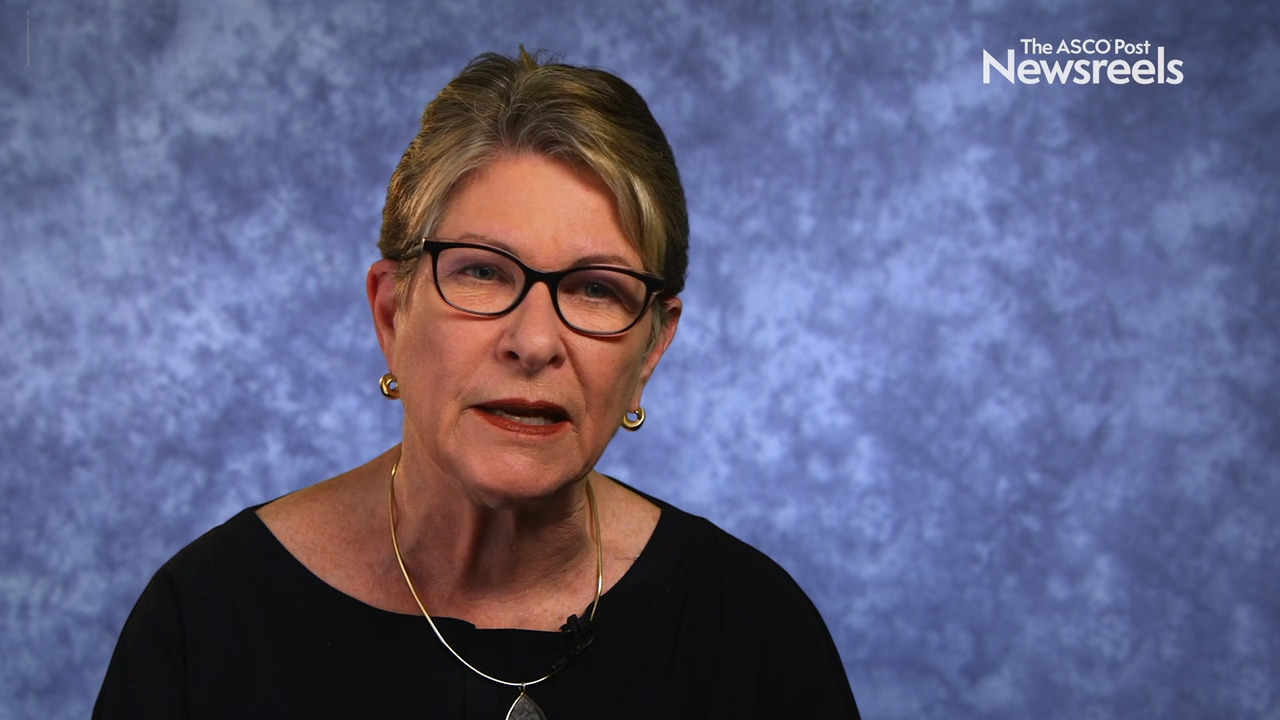Matthew A. Gubens, MD, on Non–Small Cell Lung Cancer: New Immunotherapy Strategies in the NCCN Guidelines
NCCN Annual Conference 2019
Matthew A. Gubens, MD, of the UCSF Helen Diller Family Comprehensive Cancer Center, discusses recent updates to the NCCN Guidelines in non–small cell lung cancer, including the use of pembrolizumab as a single agent or in combination based on PD-L1 status, treatment selection in squamous and nonsquamous patients, and how mutational status affects treatment strategy.
William J. Gradishar, MD, of the Robert H. Lurie Comprehensive Cancer Center of Northwestern University, discusses evidence-based first-line treatment options for patients with advanced hormone receptor–positive, HER2-negative breast cancer and toxicities associated with the various therapeutic options.
Wells A. Messersmith, MD, of the University of Colorado Cancer Center, discusses results of recent clinical trials, emerging treatment options, and approaches that may improve outcomes in patients with metastatic colorectal cancer.
Michelle B. Riba, MD, of the University of Michigan Rogel Cancer Center, discusses the prevalence of distress in patients with cancer, the need for a quick and simple screening method to identify patients with distress, and strategies for improving integration of psychosocial care into routine cancer care.
Melinda L. Telli, MD, of the Stanford Cancer Institute, discusses the various systemic therapies for patients with early-stage hormone receptor–positive, HER2-negative disease.
Margaret A. Tempero, MD, of the UCSF Helen Diller Family Comprehensive Cancer Center, discusses new adjuvant therapy options for patients with pancreatic cancer, and germline testing, including testing for microsatellite instability/mismatch repair genes as well as molecular analysis of all tumors.





